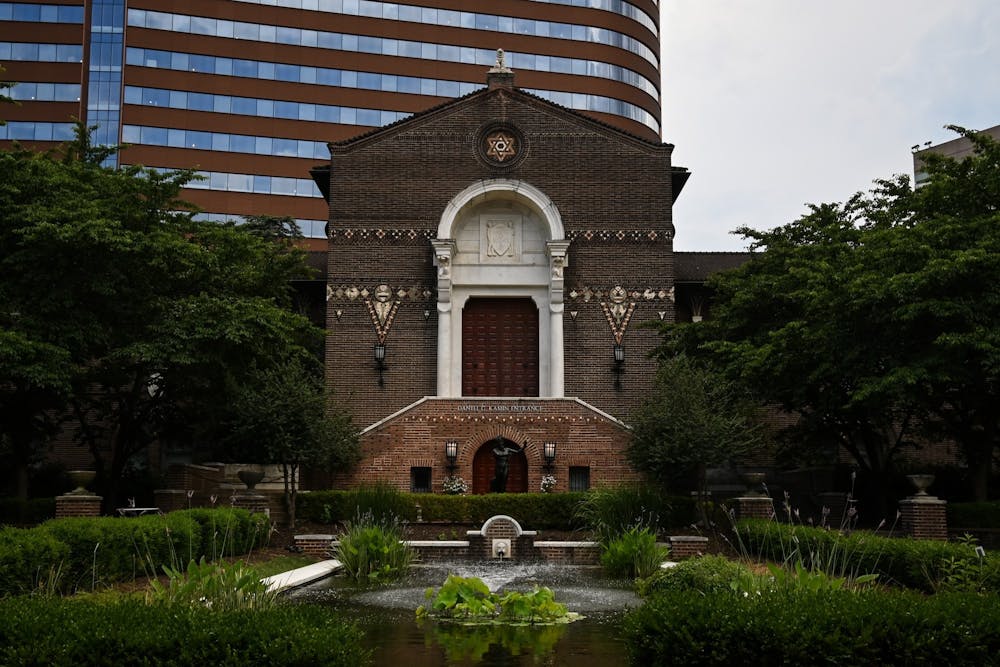
The Penn Museum on July 12, 2020.
Credit: Kylie CooperThe Penn Museum plans to rebury the cranial remains of at least 13 enslaved Black Philadelphians part of a collection formerly owned by Samuel George Morton, a Penn professor of anatomy and 1820 Perelman School of Medicine graduate.
Known as a “founding father of scientific racism,” Morton owned the Morton Cranial Collection, a vast collection of more than 1,300 crania that included the remains of enslaved people. He utilized the collection to justify white supremacist ideals through polygenesis, a form of pseudoscience that believed separate races did not descend from the same lineage, according to the Guardian.
Penn is petitioning Philadelphia’s Orphans’ Court to bury the skulls in Eden Cemetery, a historically Black cemetery, the Guardian reported. The Penn Museum had previously removed the skulls from public view in July 2020 following backlash from Penn students, and plans to repatriate the remains were announced in April 2021.
The Morton Collection has raised controversy for years. In 2019, students working on the Penn & Slavery Project found that Morton’s collection contained 53 crania of enslaved people from Havana and two crania from enslaved Americans. A February 2021 report authored by Penn & Slavery Project doctoral fellow Paul Wolff Mitchell titled “Black Philadelphians in the Samuel George Morton Cranial Collection” found that the collection contains the grave-robbed skulls of 14 enslaved Black Philadelphians.
Mitchell’s report sparked a protest which called for the Penn Museum to abolish the Morton Cranial Collection and return the remains to descendent Black communities. A Penn Museum press release that same month formally apologized for the “unethical possession of human remains in the Morton Collection.”
“It is time for these individuals to be returned to their ancestral communities, wherever possible, as a step toward atonement and repair for the racist and colonial practices that were integral to the formation of these collections,” said Christopher Woods, Williams Director of the Penn Museum.
Woods spoke to the DP in September 2021, where he reiterated the Penn Museum’s mission of repatriating the Morton Collection: “An important part of this is changing the institutional culture around adherence to policies and developing a policy for human remains that prioritizes human dignity above all else.”
The Penn Museum’s decision is not without opposition. Abdul-Aliy Muhammad, an activist who has taken a public role in calling for the skulls’ reburials, announced on Twitter that they had filed a formal complaint against the plan. Additionally, they voiced their concerns about a “lack of transparency” from the museum and Penn, as well as a lack of effort in identifying the skulls and involving the affected community.
“Penn’s role is to give us resources, and that’s it — to bear witness to that process but not be a part of it,” Muhammad told the New York Times. “They should not be the ones who decide how a healing process happens. That’s simple oppression mathematics.”
The Daily Pennsylvanian is an independent, student-run newspaper. Please consider making a donation to support the coverage that shapes the University. Your generosity ensures a future of strong journalism at Penn.
Donate






